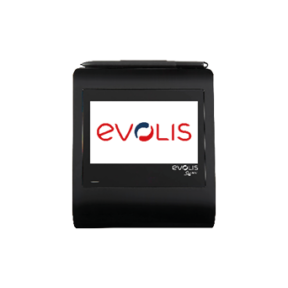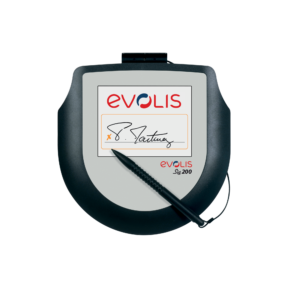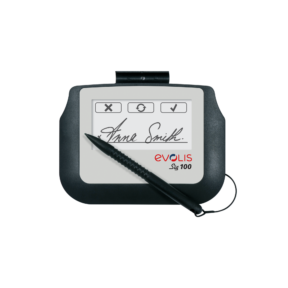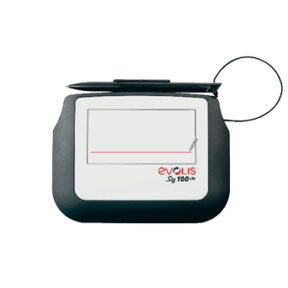Signature pads
Evolis signature pads
Evolis electronic signature tablets are innovative and practical tools for digitally signing documents securely. They integrate easily with different systems thanks to compatible interfaces and offer a personalized user experience. With data encryption technology, the confidentiality of information is guaranteed. Available in different models, Evolis electronic signature tablets meet the specific needs of each company, whether for occasional or intensive use.
In summary, they offer a fast, practical and secure solution for digitally signing documents.

Sig Activ: High-tech signature pad

SIG200: Ergonomic signature pad

SIG100: Compact LCD signature pad

SIG100 LITE: Economic signature pad
Would you like more information about our signature pads or another Evolis product?
What is an electronic signature?
It’s the digitization of a handwritten signature. It guarantees the identity of the signatory, the integrity, and provenance of the document.
What type of files can be signed electronically?
All types of documents can be signed digitally (Word documents, PDFs, etc.).
The PDF format is the most utilized. It offers good document security and accommodates several electronic signatures.
Does the electronic signature have the same legal status as a handwritten signature?
The answer is Yes. A number of laws attest to these legal statuses; these laws vary from country to country.
Some examples in Europe and the USA:
- The European Directive of December 13, 1999, recognizes the validity of the electronic signature (Article 5). The Directive gives a technical definition of the electronic signature: “data in electronic form which are attached to or logically associated with other electronic data and which serve as a method of authentication” (Article 2). This Directive marks a significant advance because it introduces the notion of “signature certificates” and “certification service provider.”
- The law of March 13, 2000, introduced the electronic signature into French law. It has the same prerogatives and requires the consent of the signatories in the same way as a handwritten signature.
- In the USA, the federal law of June 30, 2000, (Electronic Signatures in Global and National Commerce Act or “ESIGN”) governs this
The electronic signature for optimized efficiency
Adopting digital signatures optimizes the efficiency of your organization by simplifying document validation:
- Uninterrupted process: elimination of tasks that require printing documents out for a signature, then scanning them once they have been signed,
- Easier management of signed documents: delivery by e-mail or automatic archiving, lightening the load of courier services,
- Immediate availability of the information across the organization as the validated documents have been digitized and are accessible to all authorized persons.

Reinforced security
Electronic signatures, unlike handwritten signatures, can guarantee both:
- The identity of the signatory: electronic signatures cannot be falsified and offer certainty about the identity of the signatory,
- The integrity of the document from its signature: the electronically signed document cannot be altered. The signature is an integral part of the document and cannot be used for another document.
Optimized image and user experience
Allowing your customers and partners to sign a pad helps to enhance your brand profile:
- Validation of documents less laborious for the signatory,
- Modernizes the image of your organization with the adoption of signature pads,
- Reduces the ecological footprint of your workplace by eliminating printing for the document validation process.